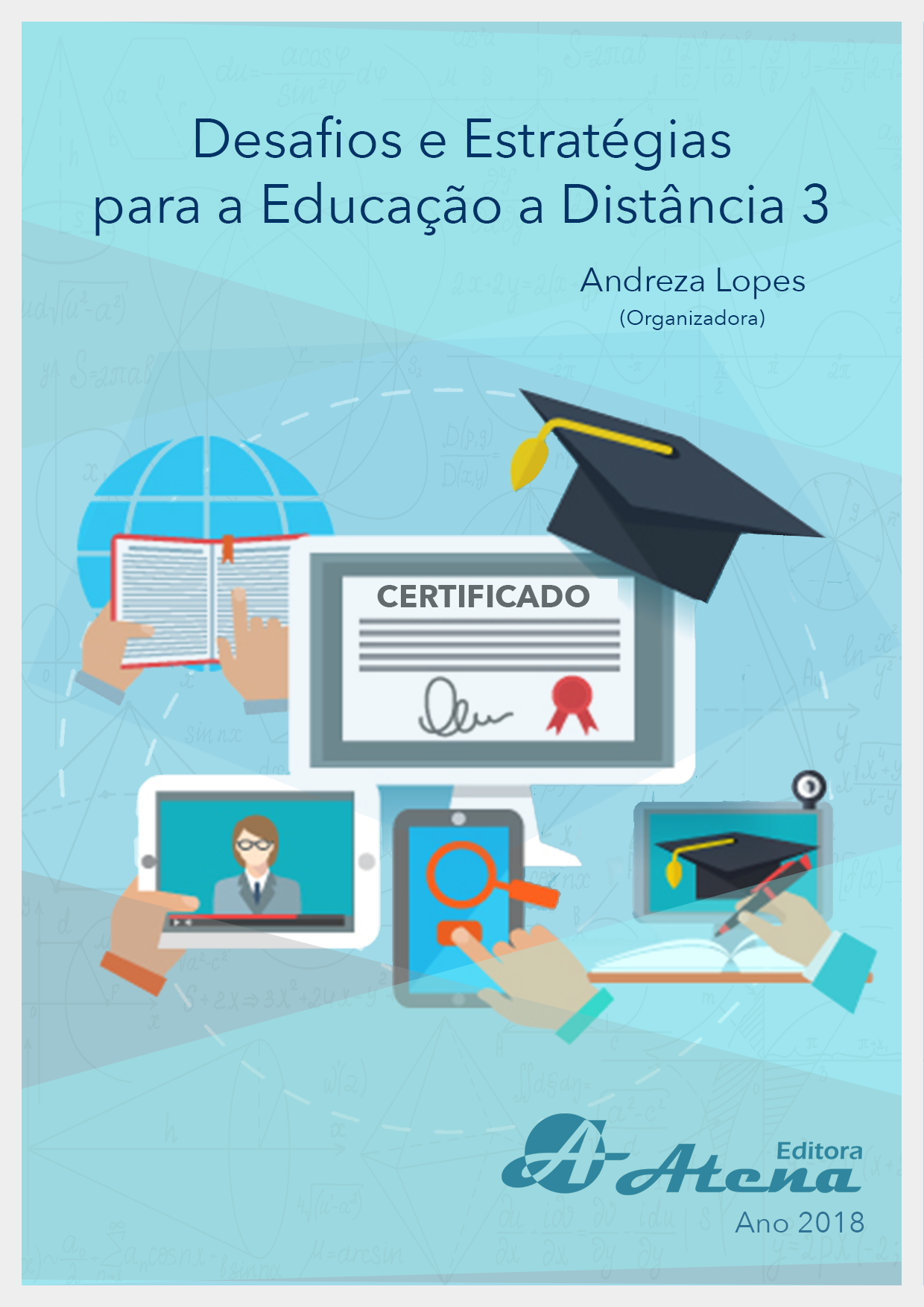
A CORRELAÇÃO ENTRE PEER INSTRUCTION E BLENDED LEARNING: UM ESTUDO DE CASO NA EDUCAÇÃO SUPERIOR
As modalidades de ensino híbrido
mesclam as atividades de ensino presencial
com as da educação a distância, e o método
ativo de ensino denominado Peer Instruction,
ou Aprendizado pelos Pares busca promover a
aprendizagem a partir do envolvimento discente
na solução de problemas relacionados com os
conteúdos conceituais, em vez de permanecerem
passivamente ouvindo tais conteúdos de forma
expositiva, pelo professor (MAZUR, 1997). O
objetivo deste trabalho foi identificar e quantificar
a correlação entre as notas obtidas pelos alunos,
na primeira avaliação do primeiro semestre de
2017, e o número de suas participações nos
fóruns temáticos das disciplinas. Esta pesquisa
utiliza uma abordagem quantitativa; quanto
aos fins, é classificada como explicativa; quanto
aos meios, este trabalho é classificado como
uma pesquisa de campo, onde se pretendeu
averiguar empiricamente o fenômeno no seu
contexto real. A estratégia metodológica aqui
apresentada é a de estudo de caso. A partir dos
resultados alcançados, foi possível identificar
que existe uma correlação moderada e, portanto,
significativa, entre as variáveis estudadas, a partir
da quantificação do respectivo coeficiente. Dessa
forma, é possível concluir que, quanto maior for
a participação dos alunos nos fóruns, entendidos
como as ferramentas para a operacionalização da
modalidade de ensino híbrido, melhores serão os
seus resultados nas avaliações. Contudo, sugerese
a ampliação deste estudo em outros contextos
educacionais, com outro tipo de abordagem, a fim
de que se comparem os resultados alcançados,
haja vista que outras variáveis qualitativas, não
previstas no escopo deste trabalho, podem ter
influenciado os resultados alcançados.
A CORRELAÇÃO ENTRE PEER INSTRUCTION E BLENDED LEARNING: UM ESTUDO DE CASO NA EDUCAÇÃO SUPERIOR
-
DOI: Atena
-
Palavras-chave: Blended Learning; Correlação Linear; Metodologias Ativas; Peer Instruction.
-
Keywords: Blended Learning; Linear Correlation; Active Methodologies; Peer Instruction.
-
Abstract:
The modalities of hybrid teaching mix
the activities of in-person teaching with those
of distance education, and the active teaching
method called Peer Instruction seeks to promote
learning from student involvement in solving
problems related to conceptual content , instead of
remaining passively listening to such content in an
expository way, by the teacher (MAZUR, 1997). The
objective of this study was to identify and quantify
the correlation between the marks obtained by the
students in the first evaluation of the first semester
of 2017 and the number of their participation in
the thematic forums of the subjects. This research
uses a quantitative approach; for purposes,
is classified as explanatory; as to the means, this work is classified as a field research,
where it was intended to empirically ascertain the phenomenon in its real context. The
methodological strategy presented here is a case study. From the results obtained, it was
possible to identify that there is a moderate and therefore significant correlation between
the studied variables, from the quantification of the respective coefficient. Thus, it is possible
to conclude that the greater the participation of the students in the forums, understood as
the tools for the operationalization of the hybrid teaching modality, the better will be their
results in the evaluations. However, it is suggested to extend this study in other educational
contexts, with another type of approach, in order to compare the results achieved, since
other qualitative variables, not foreseen in the scope of this work, may have influenced the
results achieved.
-
Número de páginas: 15
- Carlos Eduardo José da Silva


